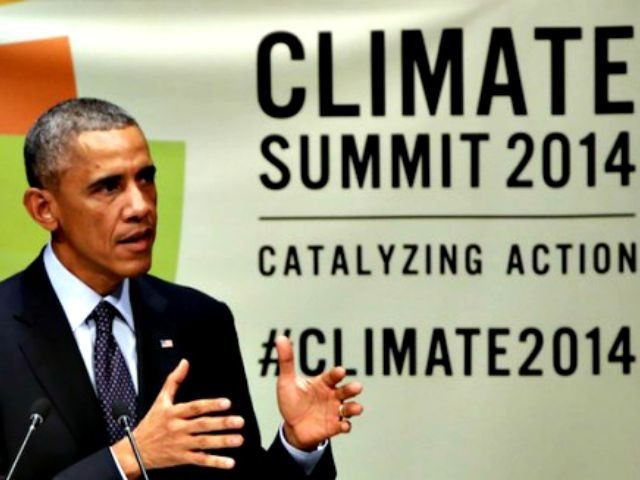One day after President Obama released new environmental regulations for power plant emissions, the United States Senate Committee on Environment and Public Works (EPW) released a detailed report of its “unprecedented” findings of the “inner-workings” of the Environmental Protection Agency (EPA), suggesting the EPA and the White House were all too “cozy” with environmental activists.
EPW conducted an investigation into the EPA’s rulemaking process and released a report Tuesday providing key findings from its research that suggest manipulation and pressure by environmental activists through close relationships and secret meetings with Obama Administration officials.
The EPW received documents from the EPA and the National Resources Defense Council (NRDC), an environmental action group, which according to the EPW’s report, “reveal excessive email exchanges on not only official government accounts but also private or alias accounts by senior EPA officials, meetings at EPA and off-site locations, and phone calls between NRDC and EPA staff dating back to early 2011.”
The report suggests the exchanges between the EPA and NRDC “sought to push the outer limits of EPA’s Clean Air Act authority and to develop the analysis on which these highly controversial and legally suspect rules are based.” The report continues, “Despite public statements by EPA officials to the contrary, documents confirm that NRDC played a very integral and major role in developing these EPA policies.”
Evidence from the analyzed documents suggest that EPA policy makers and the activists had “cozy relationships” on both a personal level, as well as a “like-minded” working relationship. The EPW findings also allege a “revolving door” between the Obama Administration and many environmental activist groups.
The evidence derived through the oversight suggests the EPA and environmental activists didn’t agree on tactics, but essentially worked side by side over many years in order to develop a message for the public to support and push new environmental rules and regulations.
“Such efforts included coordination on press responses and sessions with the White House to discuss messaging,” notes the report. “Further, this Report describes efforts to shift the public debate away from using cap-and-trade to fight climate change to touting these rules as needed to limit carbon emissions from power plants to ostensibly improve public health.”
The EPW report sheds light on the settlement process – showing it was “abused in a way that prevented the American people and those parties responsible for implementing the rules from knowing basic details of EPA’s plans to regulate, let alone from participating in the process.”
On the third page of the report, there is a list of several of EPW’s discoveries from its oversight and investigation.
A few of the key findings are listed below:
- EPA rushed into a “sue-and-settle” agreement with environmental activists groups such as the Natural Resources Defense Council (NRDC) and other environmental activists in 2010 to issue unprecedented carbon regulations with little regard to the technical, legal, and policy challenges that that these rules would present.
- EPA played politics with the regulatory process by manipulating rulemaking deadlines to avoid a public backlash close to the 2012 Presidential and 2014 midterm elections, and to push implementation of the rules to the next Administration.
- EPA and environmental activists had cozy relationships and egregiously used personal emails and held meetings away from EPA headquarters avoiding public transparency.
- EPA’s process for developing the carbon rules deviated from the Agency’s statutory authority under the Clean Air Act and egregiously circumvented transparency laws and public participation requirements.
- The White House, EPA, and environmental activists worked together to manage the public message on the carbon rules.
- EPA officials repeatedly misled the American people, the news media, and Congress about their negotiations with environmental activists and the contribution made by these activists to the development of the carbon rules.

COMMENTS
Please let us know if you're having issues with commenting.